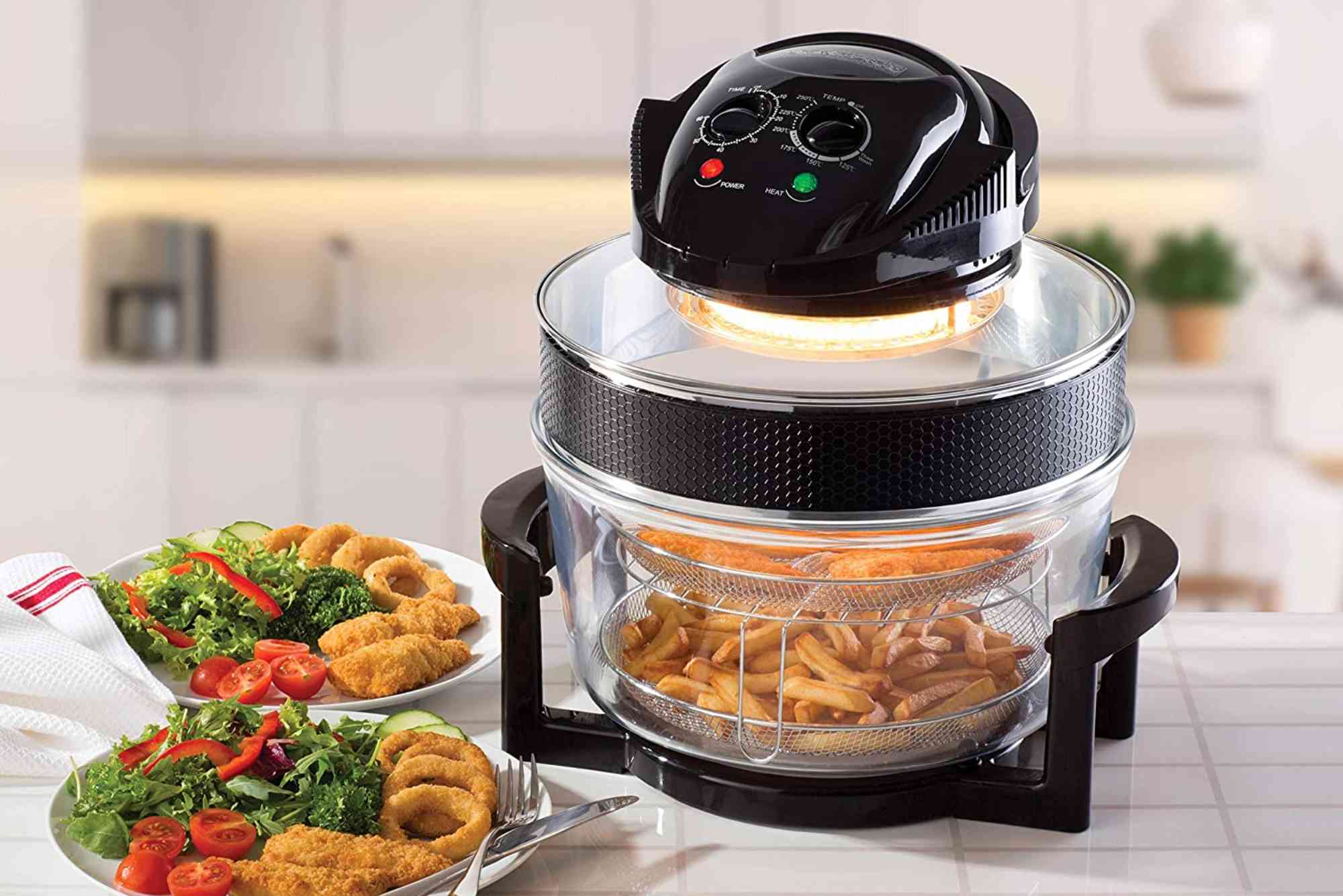Introduction
Halogen ovens are popular kitchen appliances known for their speed and energy efficiency. These countertop cookers use halogen bulbs to generate heat, cooking food much faster than traditional ovens. But with rising awareness of health and safety concerns, many people are now asking: Is halogen oven dangerous to health?
This question has sparked debates across forums, health blogs, and even among kitchen appliance experts. In this article, we explore the science, user experiences, and official guidance to determine whether halogen ovens pose any risks to your health.
Understanding How Halogen Ovens Work
Before diving into the health implications, it’s important to understand how halogen ovens function. These appliances use halogen bulbs as the heat source. When the bulb emits infrared radiation, a fan circulates the hot air within a glass bowl, cooking the food evenly and quickly.
There are no gas emissions or open flames involved, making them seemingly cleaner than conventional gas ovens. Their ability to cook food faster with less oil also adds to their healthy image.
The Core Question: Is Halogen Oven Dangerous to Health?
So, what’s at the heart of the concern? The question “is halogen oven dangerous to health” often stems from two major areas: radiation exposure and the materials used in cooking. Let’s break them down.
Radiation Myths and Facts
The term “radiation” often causes unnecessary panic. Halogen ovens use infrared radiation, which is a type of non-ionizing radiation. This is the same kind of heat you feel from the sun or a fireplace. It does not alter the structure of atoms or cause cellular damage like ionizing radiation (e.g., X-rays or gamma rays).
Infrared cooking does not make food radioactive, nor does it leave behind harmful residues. As per scientific consensus, exposure to infrared radiation in halogen ovens is minimal and poses no significant health risk.
Bulb Materials and Potential Risks
The halogen bulbs used in these ovens are encased in glass and typically contain a small amount of halogen gas (like iodine or bromine). Some concerns have arisen over possible gas leaks, but these bulbs are sealed tightly and are designed not to rupture under normal conditions.
When a halogen oven is properly used, there is no direct exposure to these gases. Unless the glass breaks or the bulb is damaged, the risk remains negligible. If damaged, manufacturers advise replacing the bulb or the unit entirely — never attempt to cook with a broken oven.
Do Halogen Ovens Affect Food Quality?
One of the most appealing claims about halogen ovens is that they retain more nutrients due to faster cooking times and less water use. In many cases, this is true. Quick cooking with less heat degradation helps preserve vitamins and minerals, especially in vegetables.
Moreover, halogen ovens often require little to no oil, making them suitable for people watching their fat intake. This advantage makes them a healthier choice compared to deep fryers or traditional baking, where more fat may be used.
There is no evidence to suggest that food cooked in halogen ovens becomes toxic or harmful. On the contrary, they may offer a healthier way to prepare meals, particularly for those with dietary restrictions.
Expert Opinions and Health Guidelines
Currently, there is no official health warning issued by food safety agencies such as the FDA, WHO, or EFSA against using halogen ovens. Most experts agree that these ovens are safe when used correctly and maintained properly.
Health professionals generally highlight that any health risks from kitchen appliances often stem more from how we use them than from the appliances themselves. Overcooking or charring food, for example, can lead to the formation of harmful substances like acrylamide — but this is true for any cooking method, not just halogen ovens.
Key Health Tips for Safe Use
To minimize any potential risk and ensure safe use of your halogen oven, consider the following tips:
Use oven-safe cookware made of glass, ceramic, or metal
Avoid using plastic containers unless labeled microwave and oven-safe
Check for any damage to the bulb or lid before each use
Follow the manufacturer’s safety and maintenance instructions
Ensure the appliance is well-ventilated during operation
Do not overcrowd the oven bowl, as poor circulation may affect cooking safety
These best practices not only improve cooking results but also ensure long-term appliance safety.
Comparing Halogen Ovens with Other Cooking Appliances
When compared to other modern cooking tools like air fryers, microwave ovens, or convection ovens, halogen ovens hold their own in terms of performance and safety.
Unlike microwave ovens, halogen ovens don’t agitate water molecules to generate heat. This results in a more traditional cooking process, without the “microwave stigma” that often concerns users.
In terms of temperature control, halogen ovens can be more precise, which helps avoid the burning or overcooking that can generate harmful compounds.
Air fryers, which are similar in concept, also use hot air circulation but rely on electric elements rather than halogen bulbs. Both are generally safe when used correctly, but halogen ovens may provide better visibility and a larger cooking space.
Is Halogen Oven Dangerous to Health for Kids or Pregnant Women?
There is no specific research that singles out children or pregnant women as being at greater risk from halogen ovens. Since these appliances do not emit harmful radiation or toxic fumes under normal use, they are considered safe for households with children and expectant mothers.
However, as with any heated appliance, keeping it out of children’s reach is essential to avoid burns or accidents.
Real-World Reviews and Concerns
Many users report satisfaction with halogen ovens, especially for their speed and cooking quality. Common concerns usually revolve around mechanical reliability or bulb replacement, rather than health risks.
Forums and reviews often ask: “Is it safe to use every day?” The answer is yes, provided it’s maintained well and used as directed. Like any cooking method, balance is key — rotating cooking styles can offer nutritional variety and prevent overreliance on one method.
(FAQs)
Is halogen oven dangerous to health?
No, halogen ovens are not dangerous to health when used correctly. They use infrared heat, which is a safe, non-ionizing radiation. Proper maintenance and usage are essential to ensure safety.
Can halogen ovens cause cancer?
There is no scientific evidence linking halogen ovens to cancer. Infrared heat used in these ovens is non-ionizing and does not alter the chemical structure of food. However, overcooking or charring food, regardless of the appliance, can create harmful compounds.
Are halogen ovens safe for everyday use?
Yes, halogen ovens are safe for daily use. Just ensure they are cleaned regularly, used with appropriate cookware, and checked for any damage.
Do halogen ovens emit harmful radiation?
Halogen ovens emit infrared radiation, which is safe for cooking. It’s the same type of heat you get from sunlight or a heater and does not harm your food or body when used properly.
What are the disadvantages of halogen ovens?
While generally safe, halogen ovens can be bulky, and the bulbs may need replacement over time. Cooking large items may also be challenging if the model has a small capacity.
Are Halogen Ovens Really Harmful?
After reviewing scientific evidence, expert opinions, and user experiences, the answer is clear: halogen ovens are not dangerous to health when used properly. They offer a healthy, efficient alternative to traditional cooking methods, especially for those seeking faster meals with less oil.
Of course, safety comes down to responsible usage. Following the manufacturer’s guidelines, avoiding damaged units, and using appropriate cookware are all essential steps in protecting your health.
If you’re considering buying a halogen oven, or already have one, there’s no reason to worry about its impact on your well-being. In fact, with the right use, it can become one of the healthiest tools in your kitchen.
Still wondering, is halogen oven dangerous to health? Share your experiences or questions in the comments. If you found this article helpful, subscribe for more health-based appliance reviews and updates!





